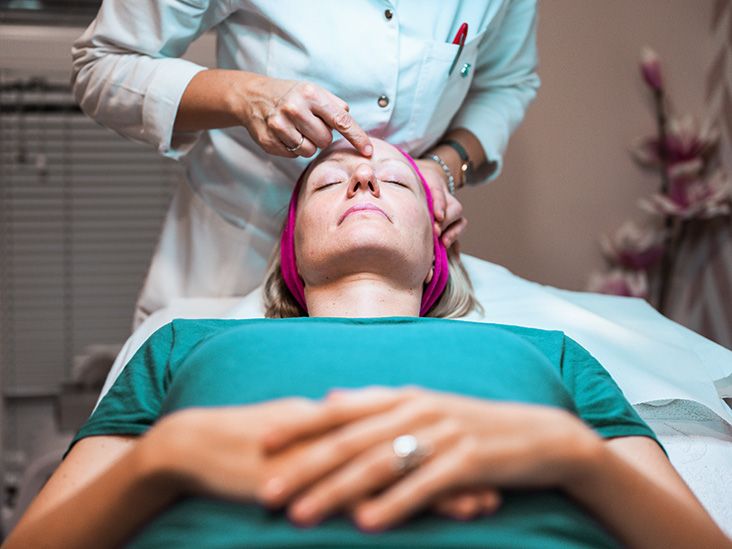Seek specialized hair loss expert to help you with effective solutions and treatments.
Seek specialized hair loss expert to help you with effective solutions and treatments.
Blog Article
The Value of Mohs Surgical Procedure in Dermatology for Skin Cancer Cells Patients: What You Need to Know
When it comes to skin cancer treatment, the importance of Mohs surgery can not be overstated. As a very specific and reliable technique, it assures not just the extensive elimination of cancerous tissue yet likewise the conservation of healthy skin.
Recognizing Skin Cancer Cells: A Short Summary
Skin cancer cells, an extensive and possibly deadly malady, begins as an aberration in the skin cells. There are 3 major kinds of skin cancer cells: basal cell carcinoma, squamous cell cancer, and the much more unsafe melanoma. Early detection is vital to effective therapy, making routine skin exams an important precautionary step.
What Is Mohs Surgery: an Extensive Description
Mohs surgery, an exact surgical method used in skin cancer treatment, is a subject that warrants very close attention. This specific procedure, its benefits, and prospective threats will be completely analyzed. The objective is to supply an extensive understanding of this substantial dermatological intervention.
Understanding the Mohs Procedure
While many might not be familiar with the term, Mohs surgical procedure is an exact medical technique mostly used in the therapy of skin cancer. The cosmetic surgeon, that is usually a skin specialist, is educated in both surgical procedure and pathology, permitting for the instant and precise evaluation of the tissue. This unique element of Mohs surgery considerably raises the opportunities of complete cancer cells elimination and reduces the demand for additional therapies or procedures.
Mohs Surgical Procedure: Advantages Checked Out
Delving much deeper into the realm of Mohs surgical treatment reveals a variety of advantages that make it an appealing choice for skin cancer patients. Its key benefit exists in its precision. The technique permits the elimination of cancerous cells with very little effect on the bordering healthy tissue, maintaining as high as possible of the client's skin honesty. With a success rate of up to 99% for preliminary tumors and 94% for reoccuring ones, it provides high cure rates. Moreover, Mohs surgical procedure is cost-efficient in the long-term, as it commonly needs fewer treatment sessions than various other methods. With its ability to offer instant and thorough microscopic exam of the excised tissue, it makes sure an extensive elimination of the cancerous cells.
Potential Threats of Mohs
In spite of its various advantages, it is very important to recognize that Mohs surgery, like any kind of other medical treatment, includes its own collection of prospective risks. These might include infection, blood loss, and possible sensitive reactions to the neighborhood anesthesia. There might likewise be a chance of nerve damages, resulting in short-lived or long-term tingling near the medical location. Additionally, similar to any type of surgery, there is a threat of scarring. While the micrographic nature of Mohs surgical treatment minimizes this threat, it is not totally eliminated. It's additionally critical to keep in mind that in many cases, the cancer may not be completely eliminated, necessitating more treatment. Ultimately, just like any skin surgery, there's a little risk of the cancer cells recurring.
The Procedure of Mohs Surgical Treatment: Step-by-Step
To truly appreciate the intricacies of Mohs surgery, it is essential to walk via the procedure step-by-step. From the preliminary preparations for the surgical treatment to the post-procedure care and recovery, each stage plays a Home Page vital role in the success of the treatment (mohs surgery). This area will certainly detail the process, providing an extensive summary of what individuals can expect during their journey through Mohs surgery
Comprehending Mohs Surgical Treatment Procedure

Planning For Mohs Surgical Treatment
Prior to going through Mohs surgical treatment, precise preparation is essential for a smooth procedure and successful end result. People must likewise useful source be informed about the possible threats and benefits of the surgery.
On the day of the treatment, people are suggested to consume a normal breakfast unless advised otherwise. Comfortable apparel is advised, and patients need to plan to bring a book or similar item for enjoyment throughout waiting durations. It should be kept in mind that the treatment can last numerous hours, depending upon the complexity of the case.

Post-Procedure Care and Recuperation
What does post-procedure treatment and healing look like for people who have gone through Mohs surgery? After the surgery, clients are normally given wound care instructions to facilitate proper healing. It's worth noting that while Mohs surgical treatment has a high success rate, recovery may vary depending on the dimension and area of the skin cancer cells, as well as the person's total health and wellness.
The Effectiveness and Success Rate of Mohs Surgical Procedure
Often touted as one of the most efficient therapies for skin cancer cells, the success rate of Mohs surgical procedure is undoubtedly outstanding. Research studies reveal that for primary basic cell carcinoma, the most typical kind of skin cancer, Mohs surgery boasts a five-year remedy price of up to 99%.
Prospective Threats and Problems of Mohs Surgical Procedure
In some situations, the surgery may leave a scar or alter the look of the skin. Additionally, as with any type of surgical treatment, there's always a threat that the cancer cells can return. It's important that patients are aware of these potential dangers before undergoing Mohs surgical treatment.
Post-Surgery Treatment and Preventive Procedures for Skin Cancer Cells Reoccurrence

Final thought
In recap, Mohs surgical treatment plays a crucial function in dermatology, offering skin cancer cells individuals a reliable therapy with high success prices. Understanding Mohs surgery equips individuals to make informed choices for optimum therapy outcomes.
Report this page